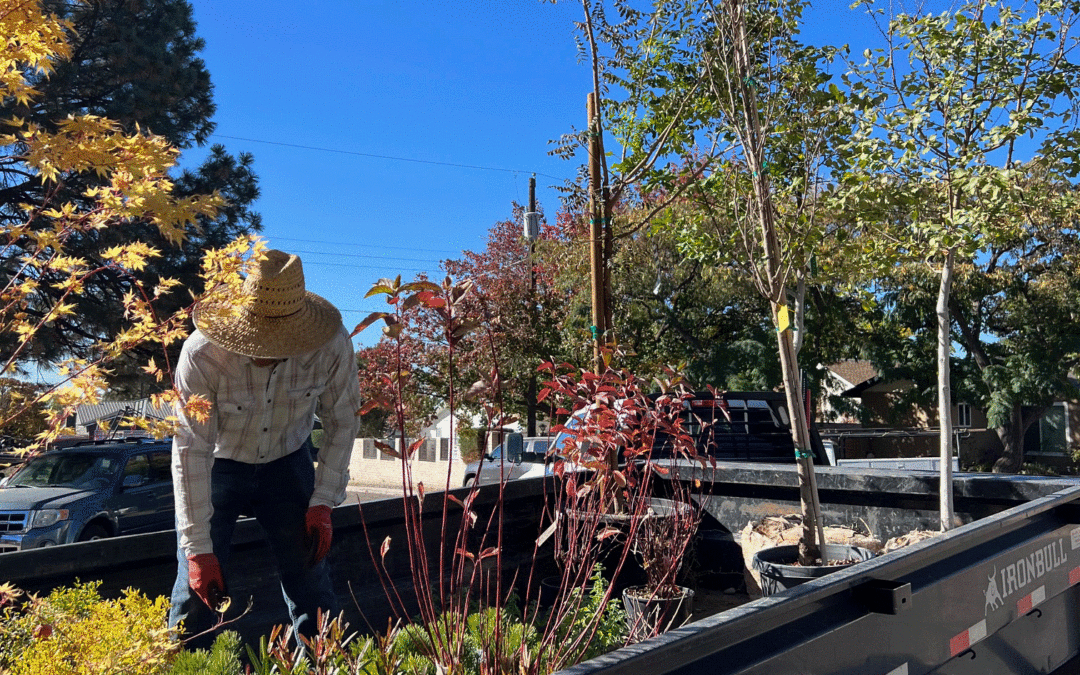Sometimes you need help to create your perfect desert friendly landscape. Many times, this involves hiring a landscape contractor. The Water Utility Authority is committed to helping its customers. Below we share some tips to help you choose a landscape contractor.
It’s important to start with a to-scale landscape design plan. This may be done by a professional landscape architect or a landscape designer. Or perhaps you worked up your own design plan.
Hiring a landscape contractor requires research similar to what you would do when hiring any home repair contractor. It’s important to consider the following:
Qualifications
- Do the contractor and employees have the necessary license and insurance? To check for contractor licensing in New Mexico, visit the state Regulation and Licensing Department and use the contractor license search.
- Is the contractor able to secure bonding and are they insured?
- What are the contractor’s credentials (formal training, references, professional certification)?
- Does the contractor belong to a local or national trade association and abide by its standards?
- Does the contractor have a Water Smart Contractor listing through the Albuquerque Bernalillo County Water Utility Authority?
- The contractor should provide references for projects similar in size, scope and design so you can talk to previous customers about their experiences.
- The contractor should share photographs of other projects you can check out.
Estimate/Bid and Contract
- The contractor should provide you with a detailed, line-item estimate for the work. This will include the price of the materials, labor, taxes and permit costs if applicable. A detailed estimate will help you accurately compare pricing and services.
- A signed estimate may act as the official contract, a legal requirement that will protect both you and the contractor if anything goes wrong.
- What is the payment schedule? Most contractors will ask for anywhere from 30% to 50% up front so they can purchase materials. They should provide you with a general timeline or payment schedule.
- How long will the construction take, and what does the sequencing/schedule look like?
- How does the contractor manage additional work that may be added in the middle of the project and is not on the plan?
During and After Construction
- Who will be the contractor’s point person, someone you can go to with questions? How will they communicate with you and how often?
- How will the contractor handle variabilities that come up during construction?
- What happens if there is a delay once construction has started?
- The contractor should show you how to maintain the landscape after it is built and how to work the elements installed, such as the irrigation controller.
- What are the warranties for the project? What do they cover and exclude?
- Does the contractor provide troubleshooting support during the first year after installation?
Learn more about Irrigation and Planting here:
The Irrigation Consumer Bill of Rights
Simple Irrigation Maintenance Techniques
How to Make a Tree Watering System for Your Established and Mature Trees


